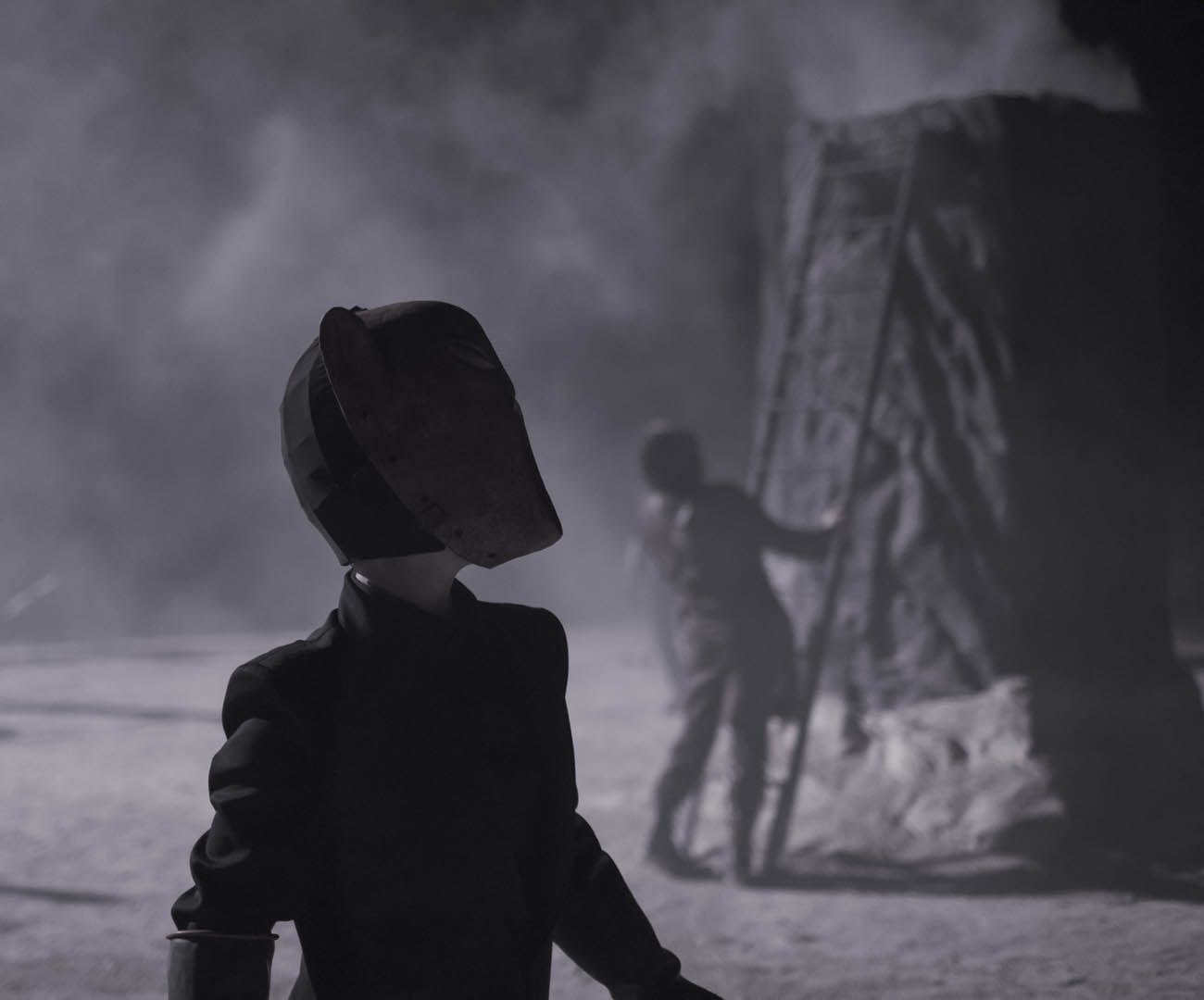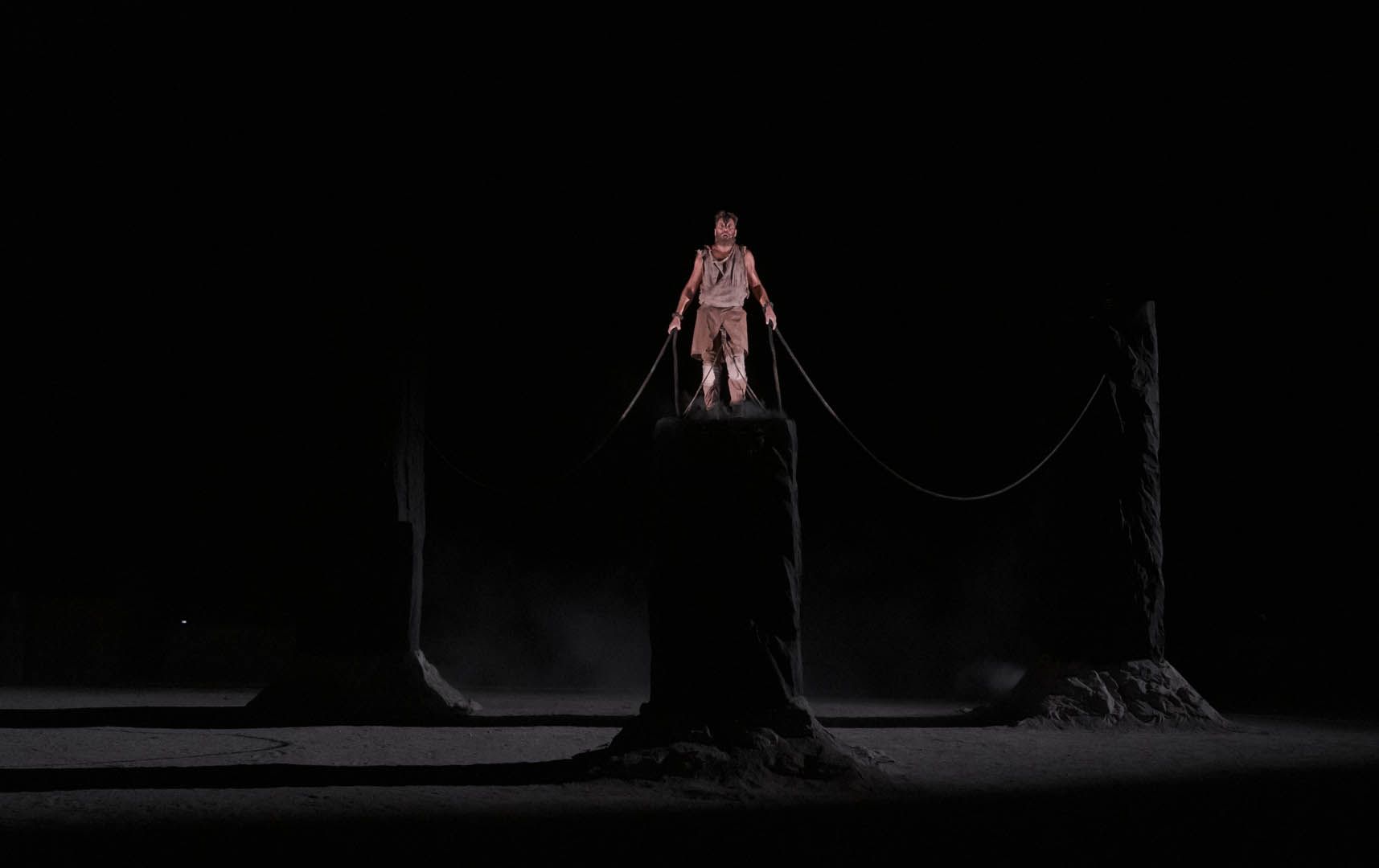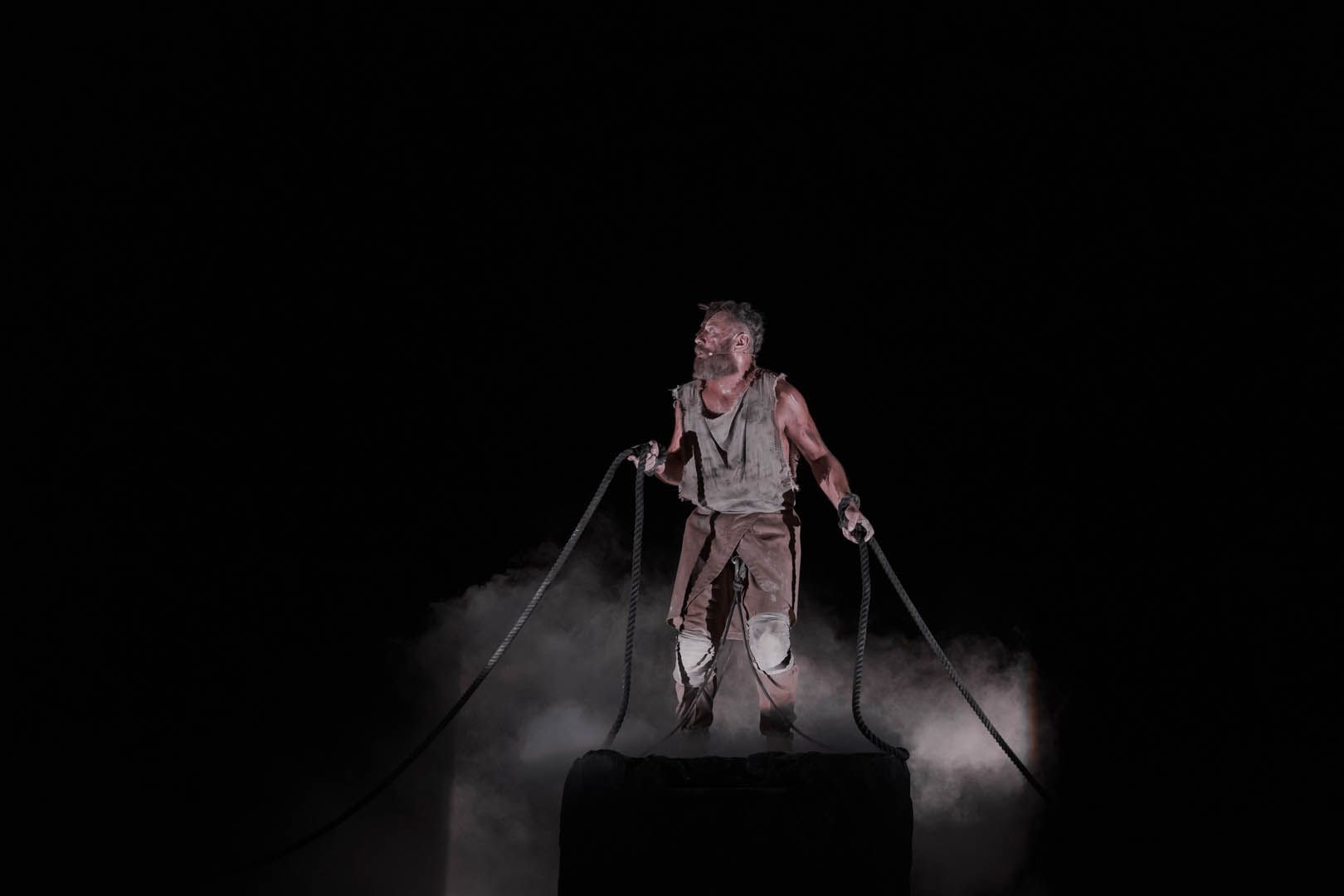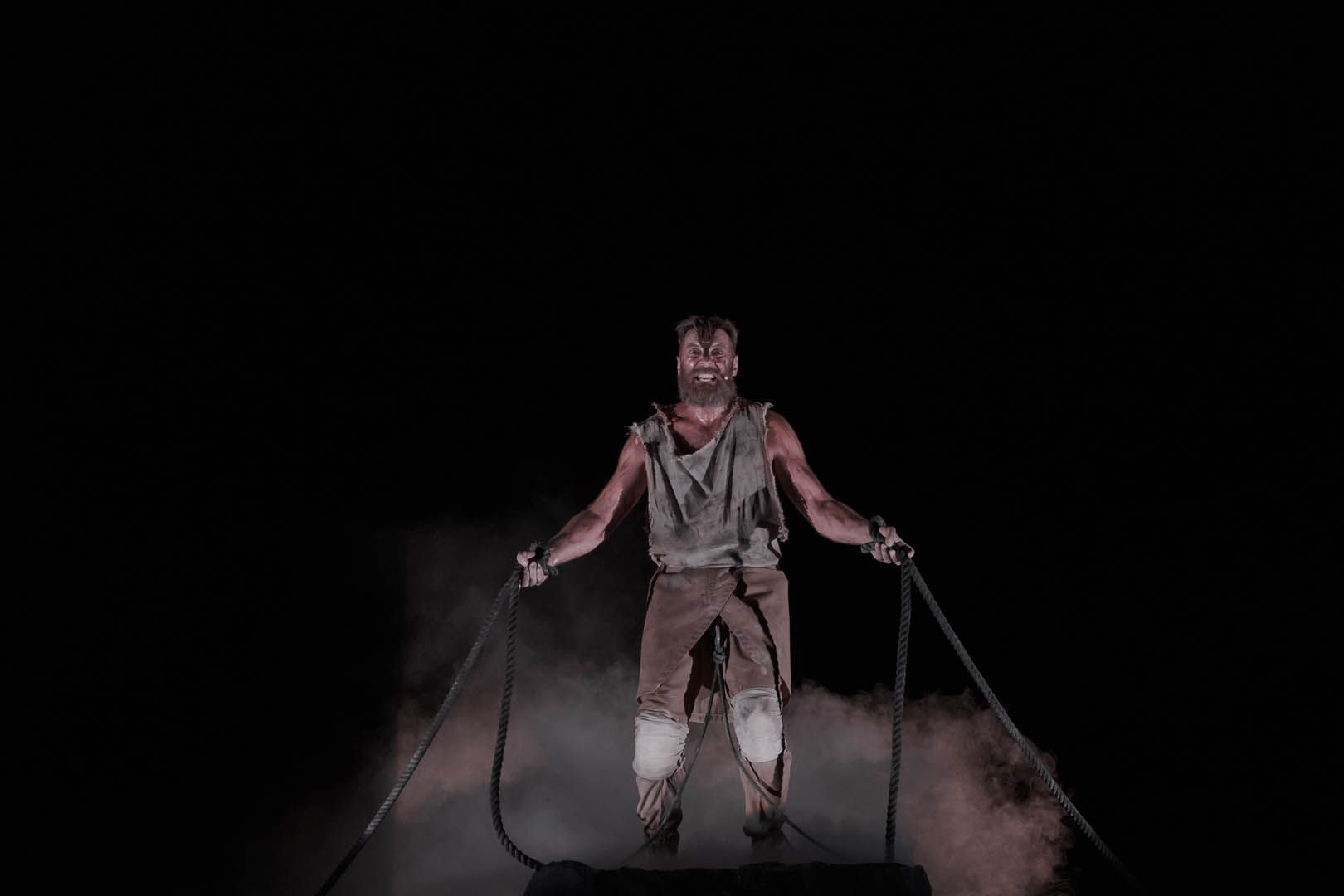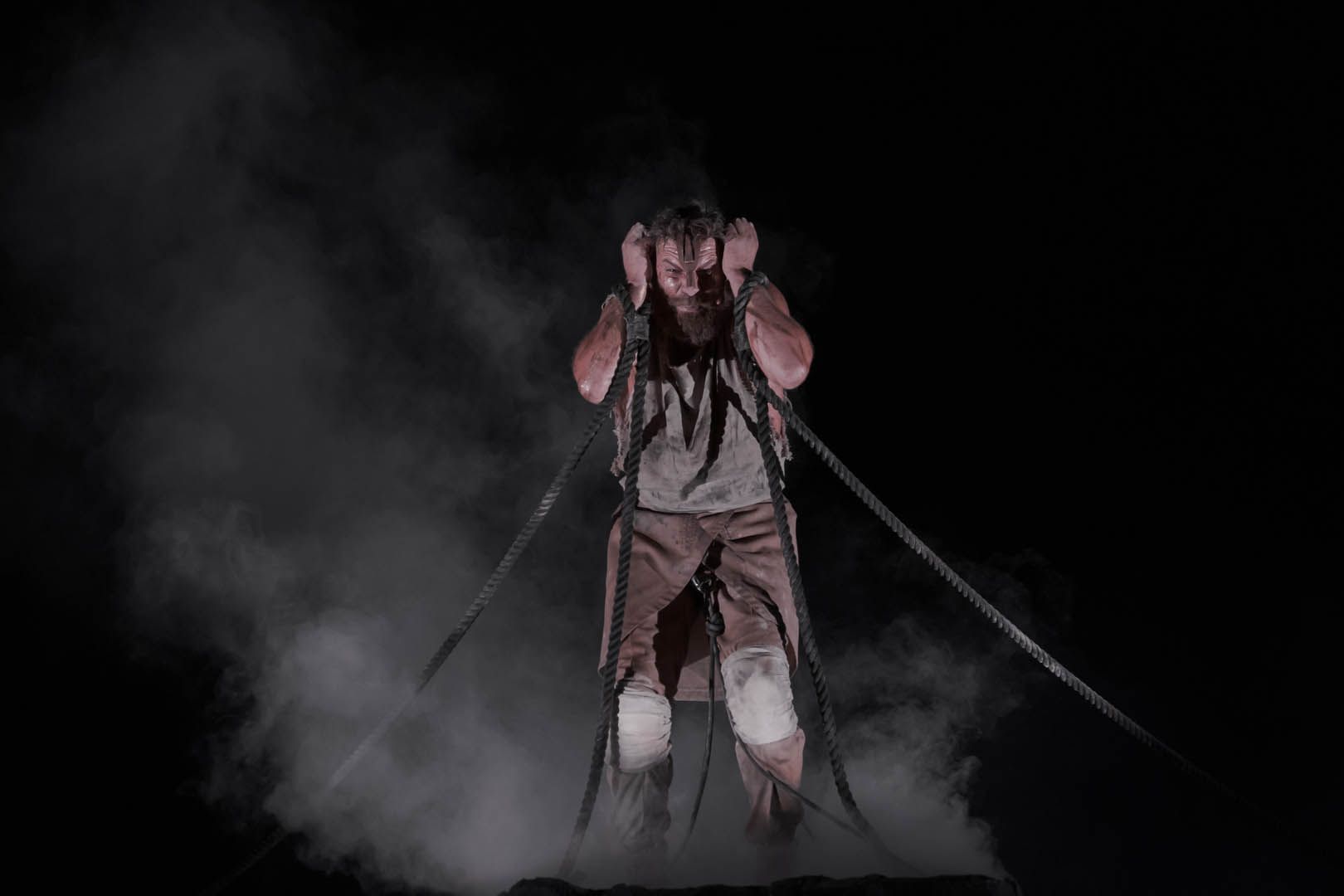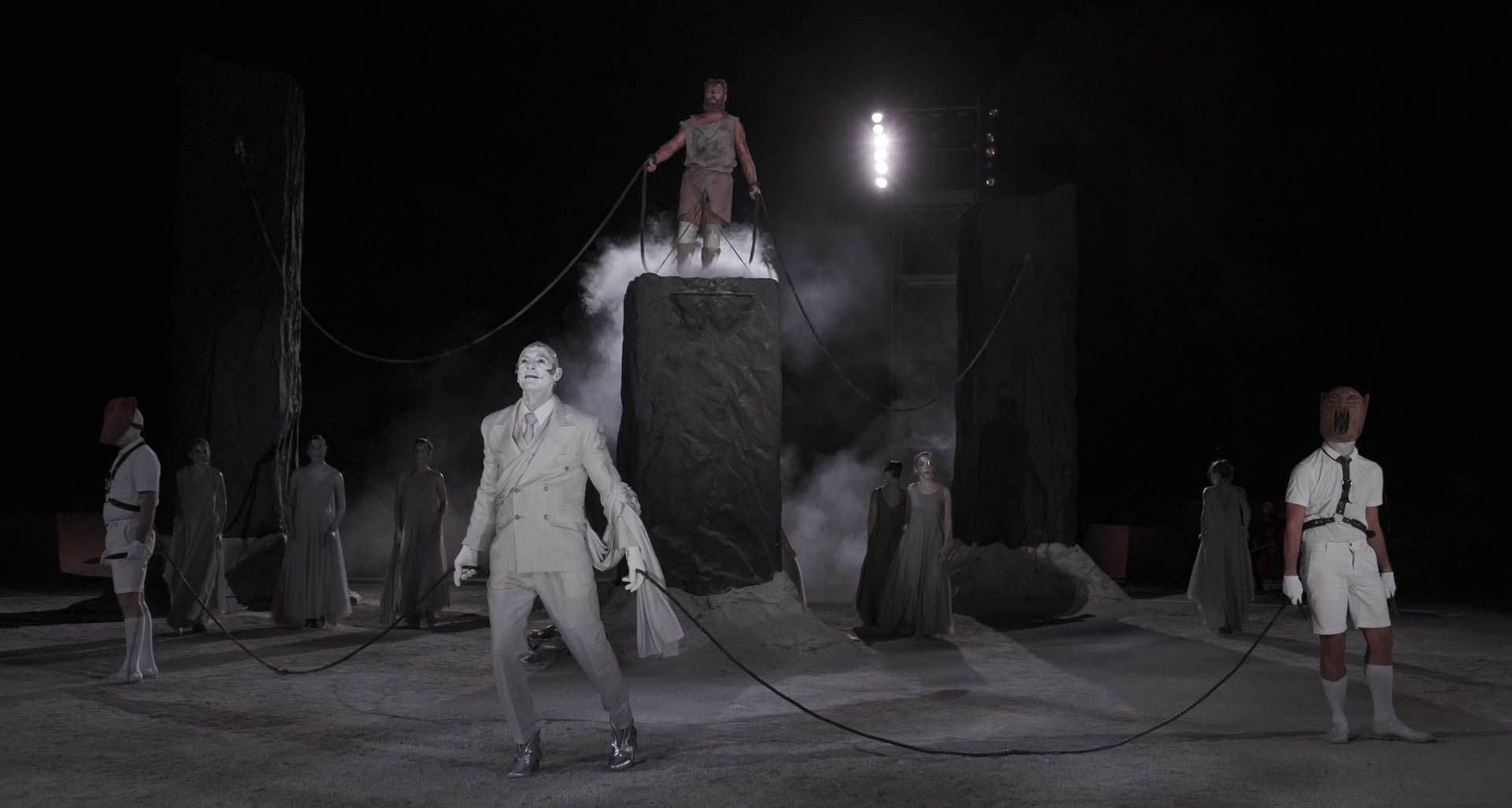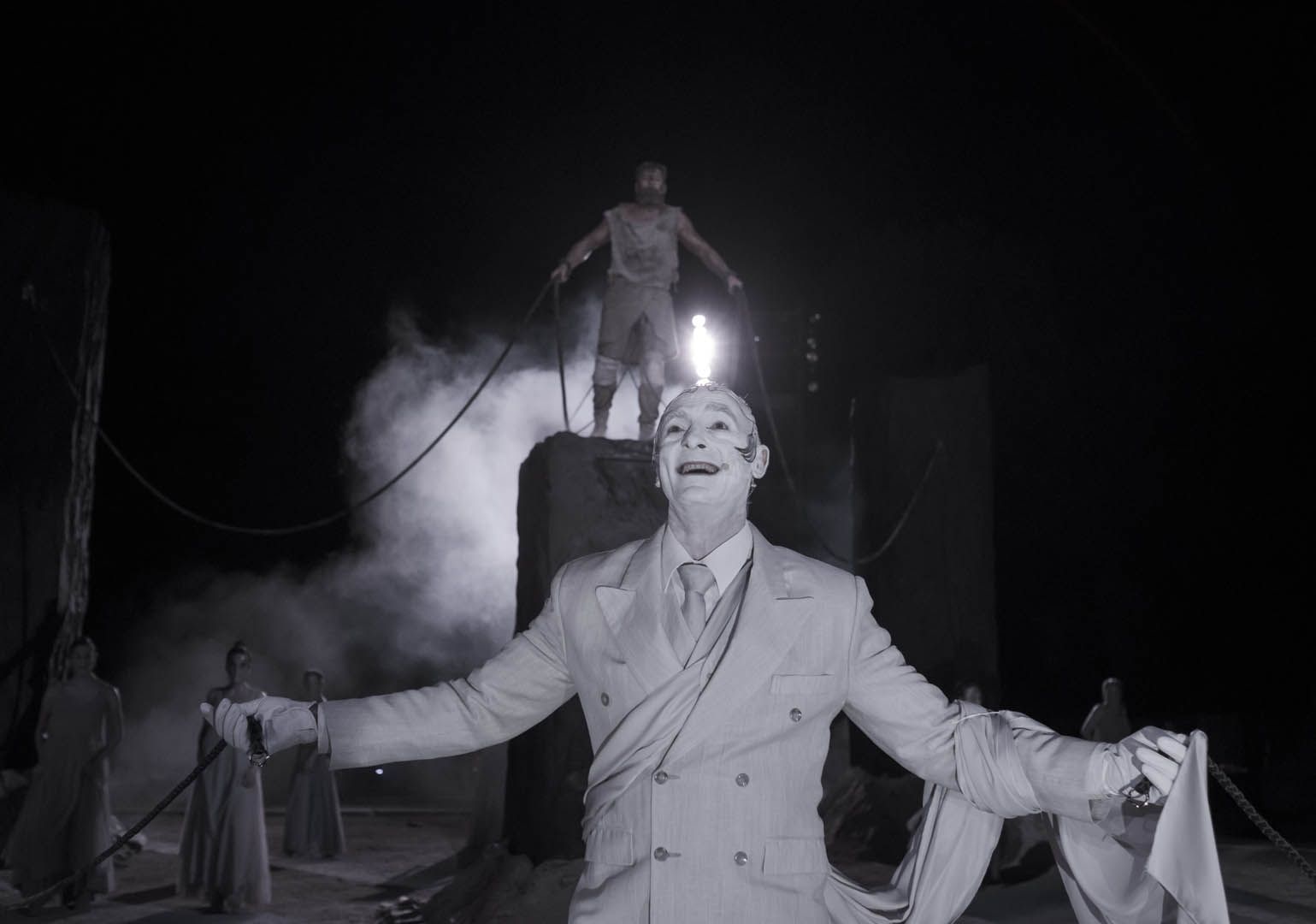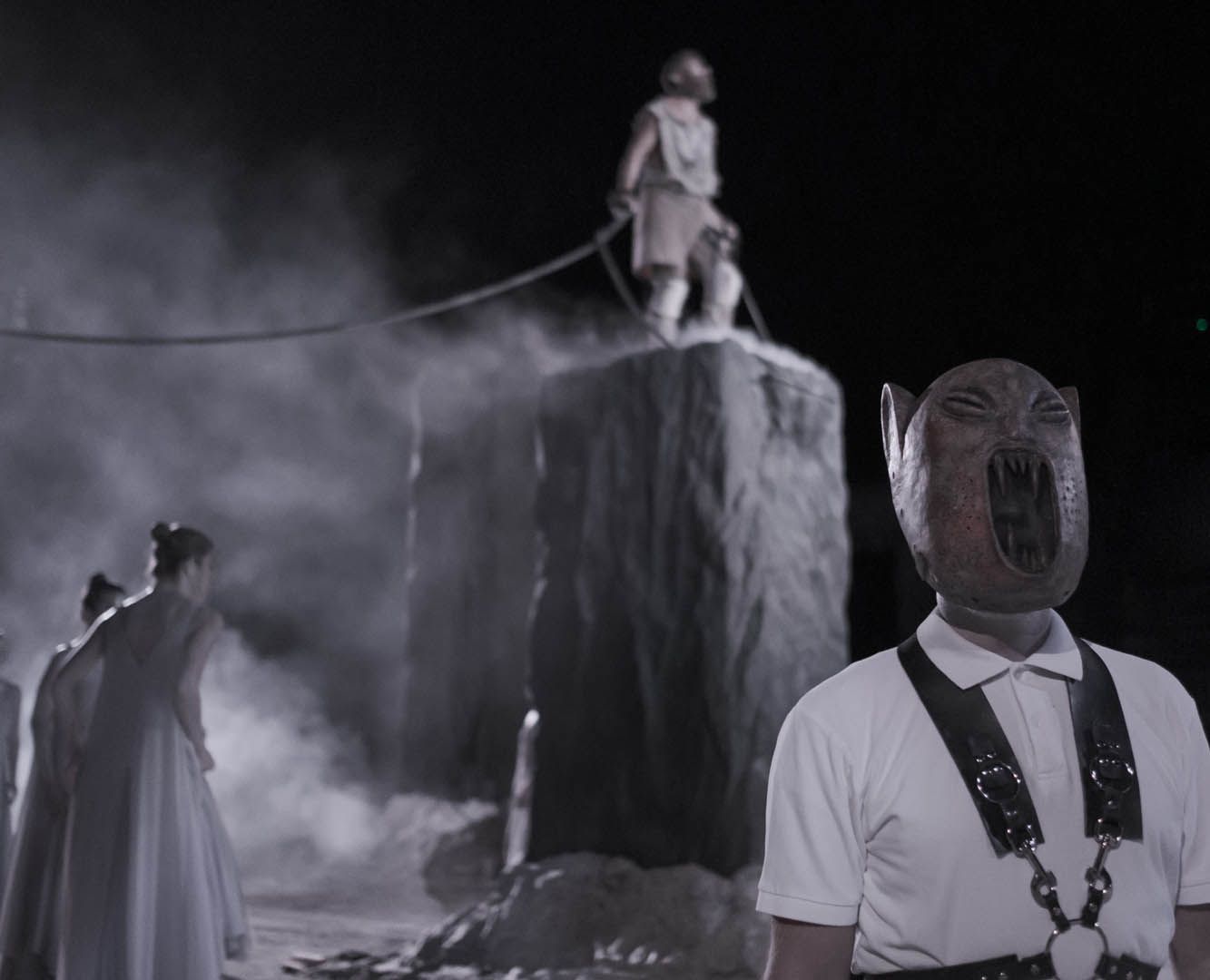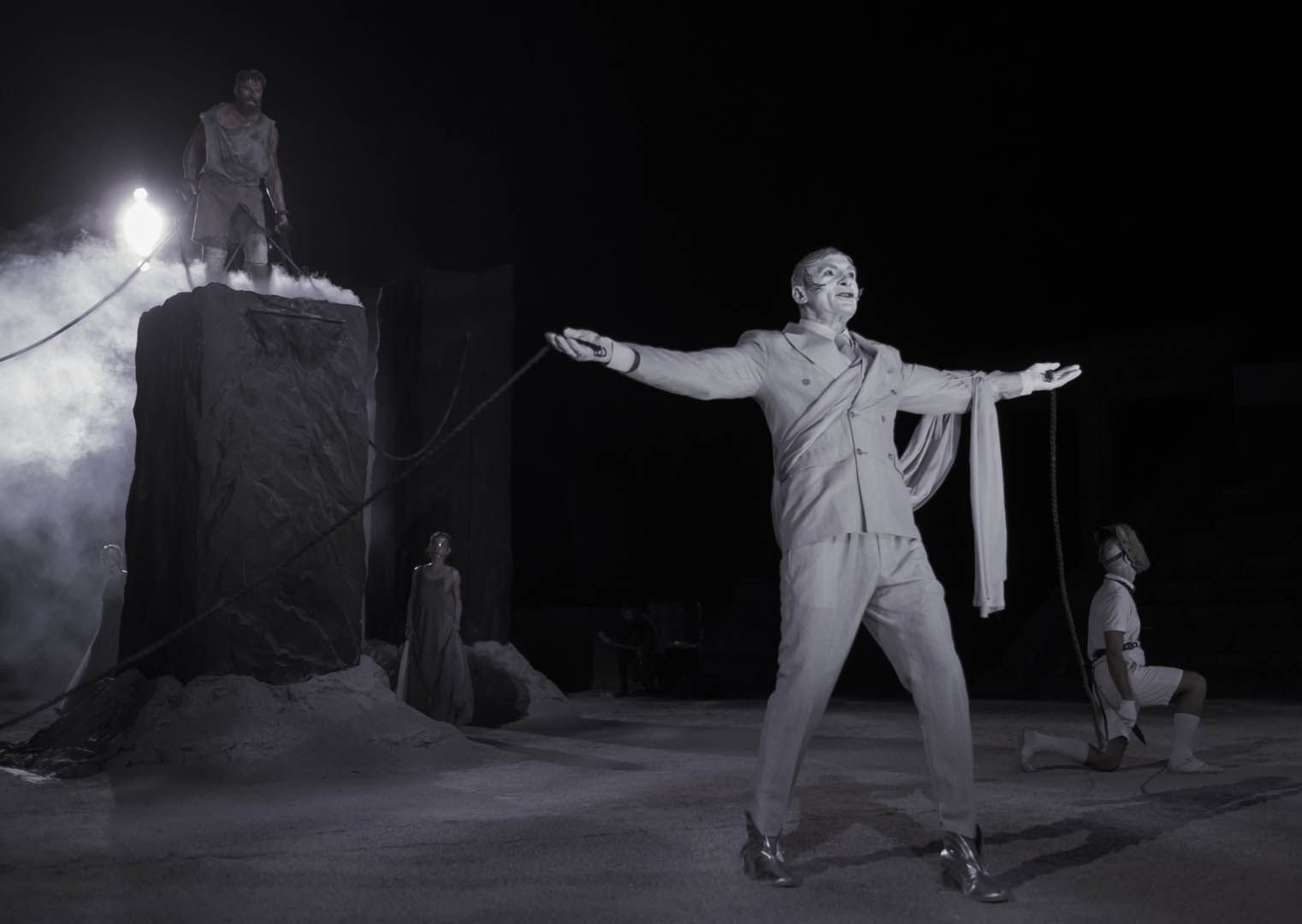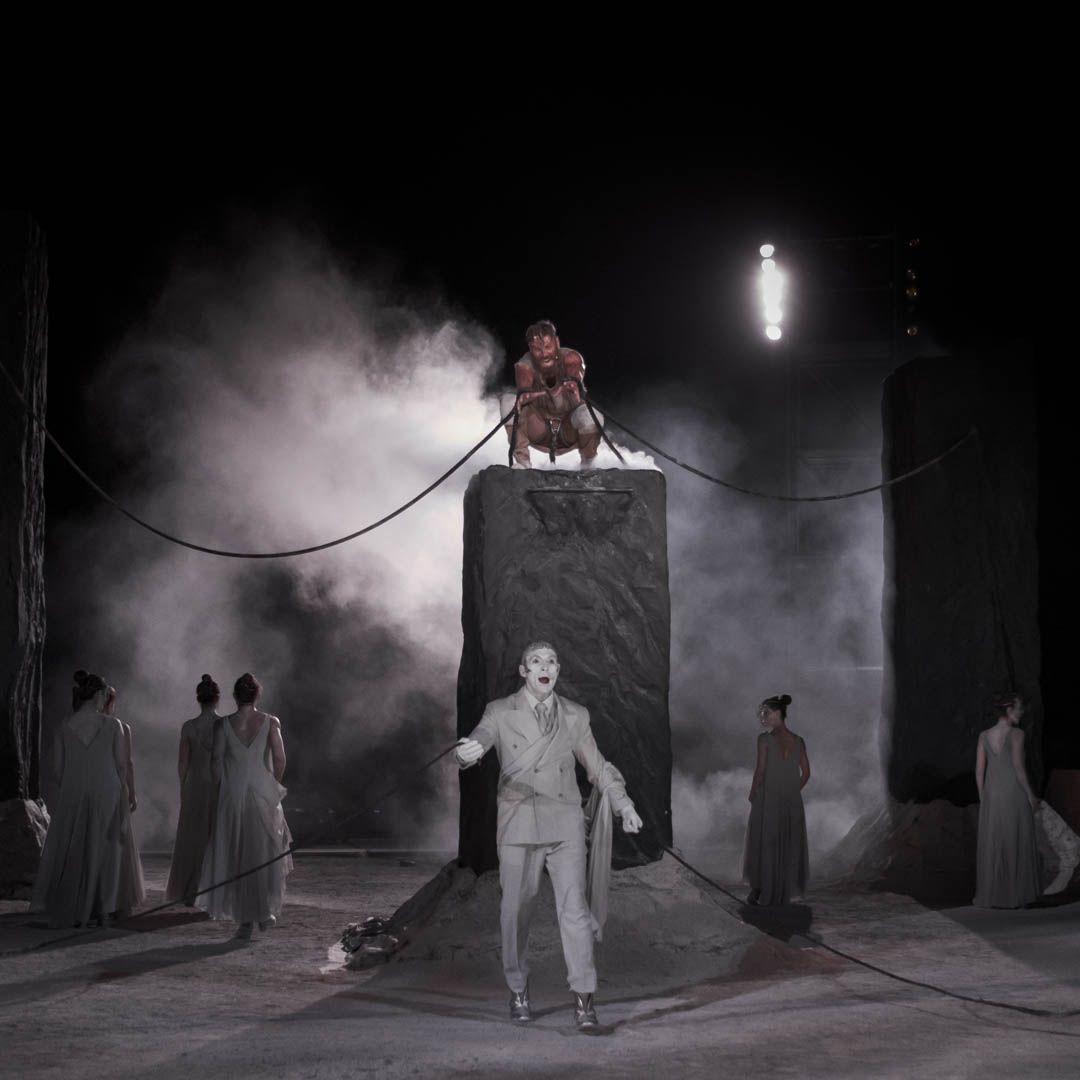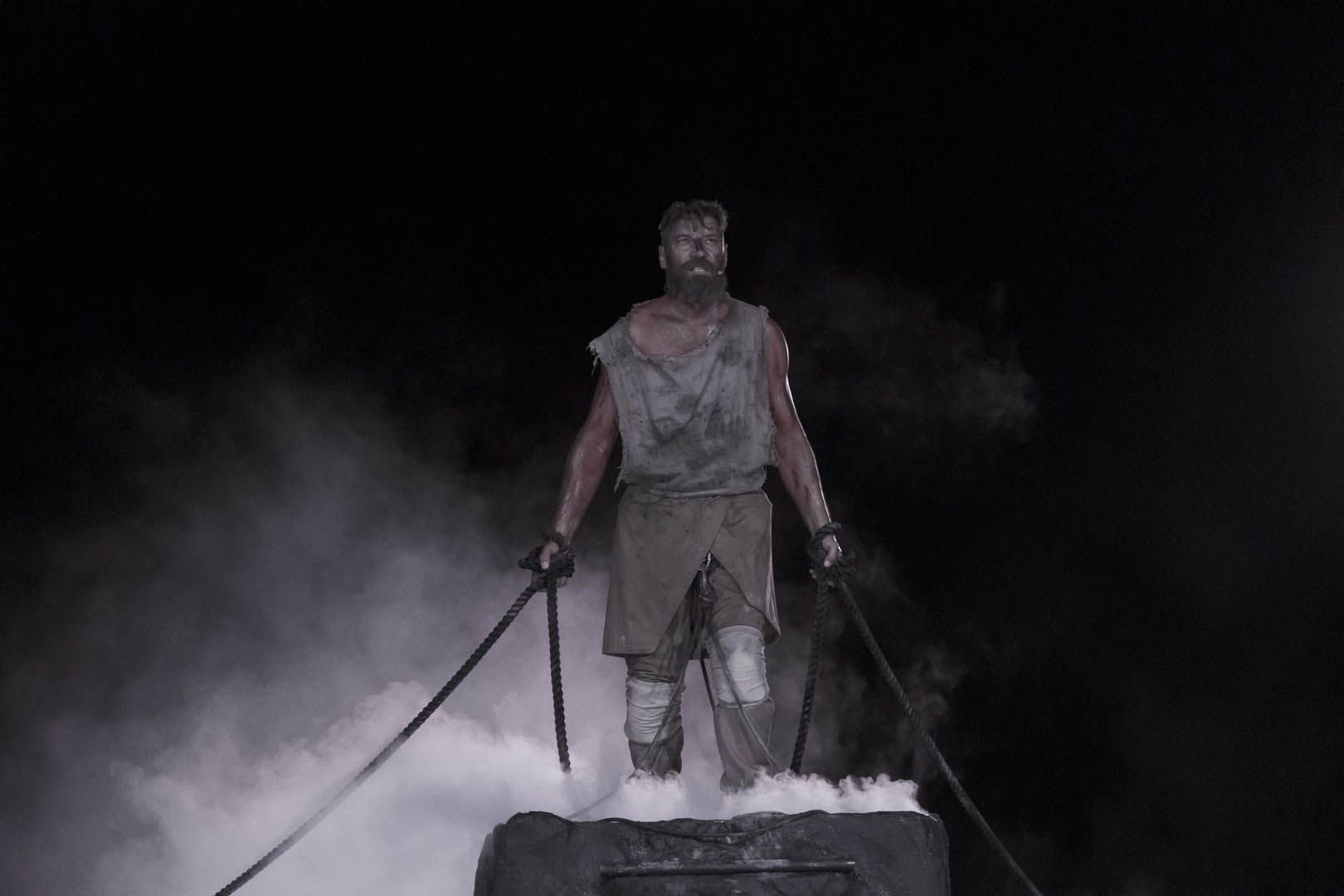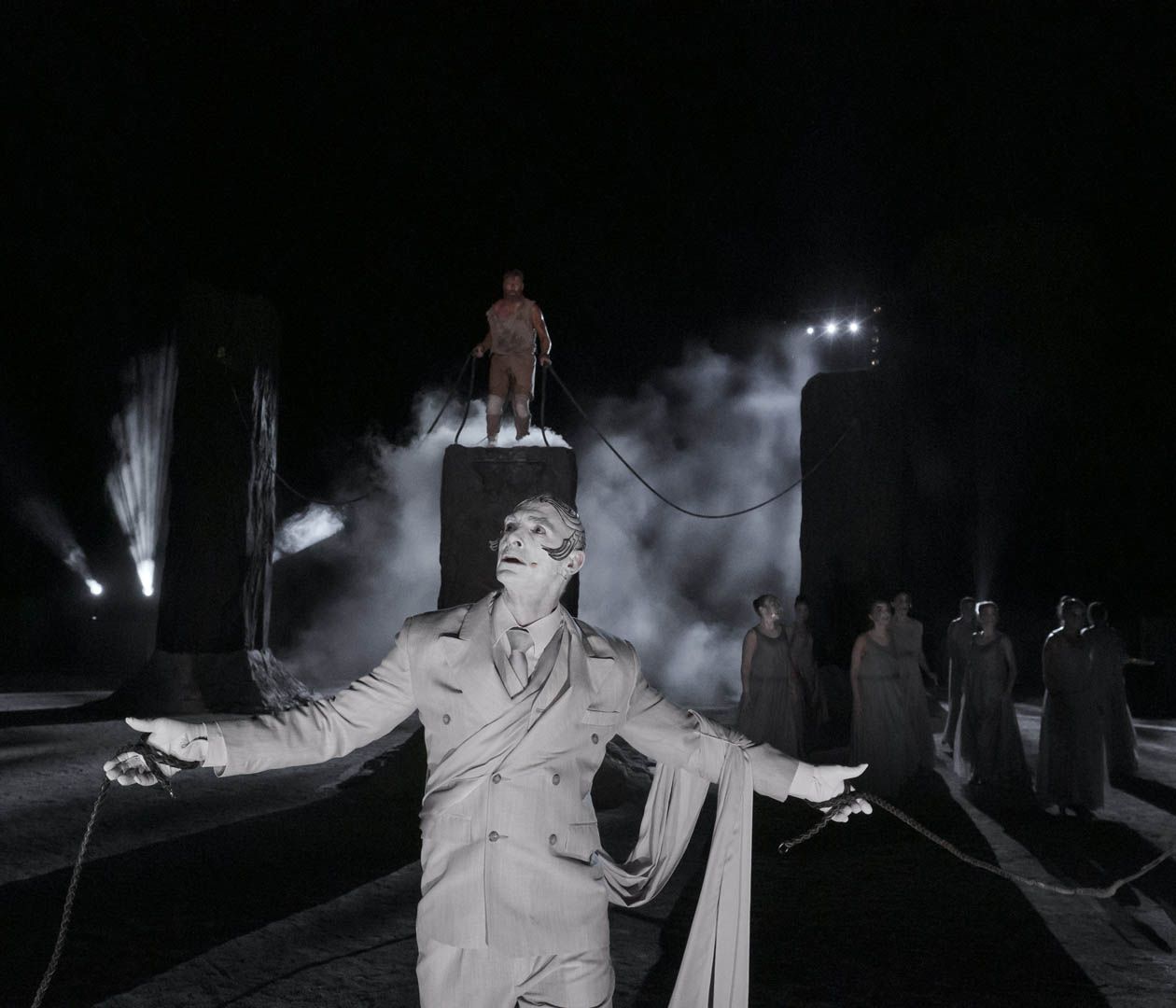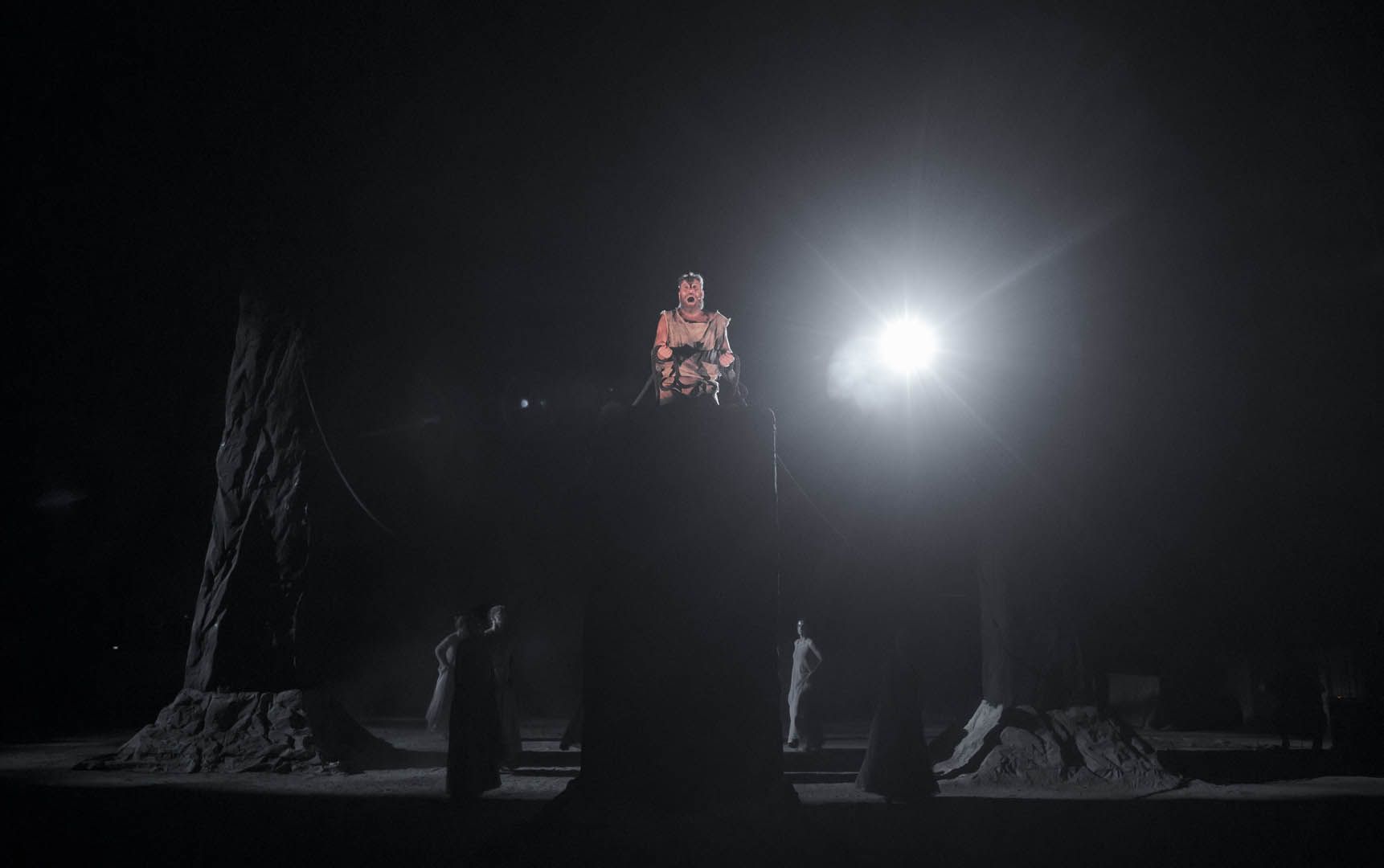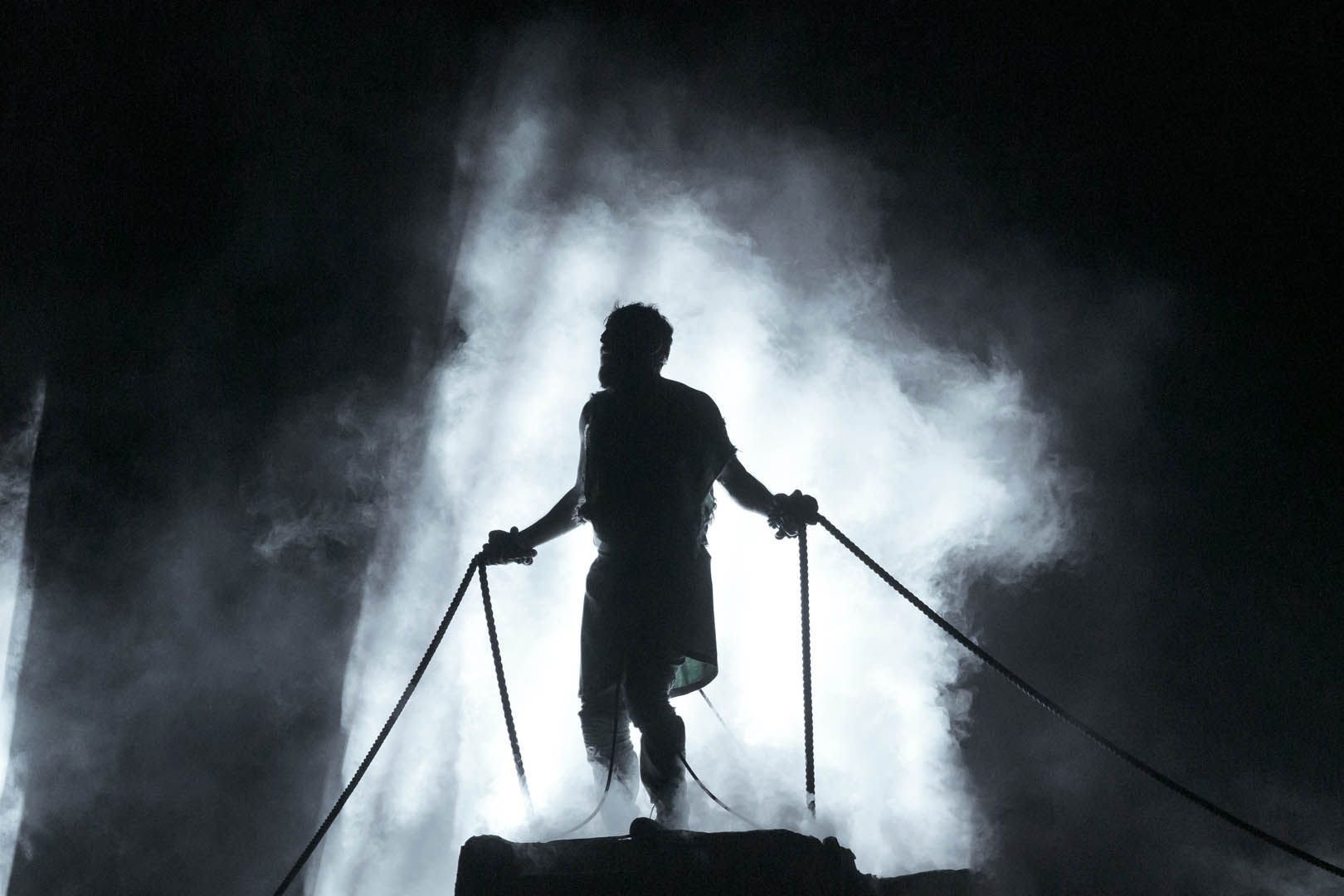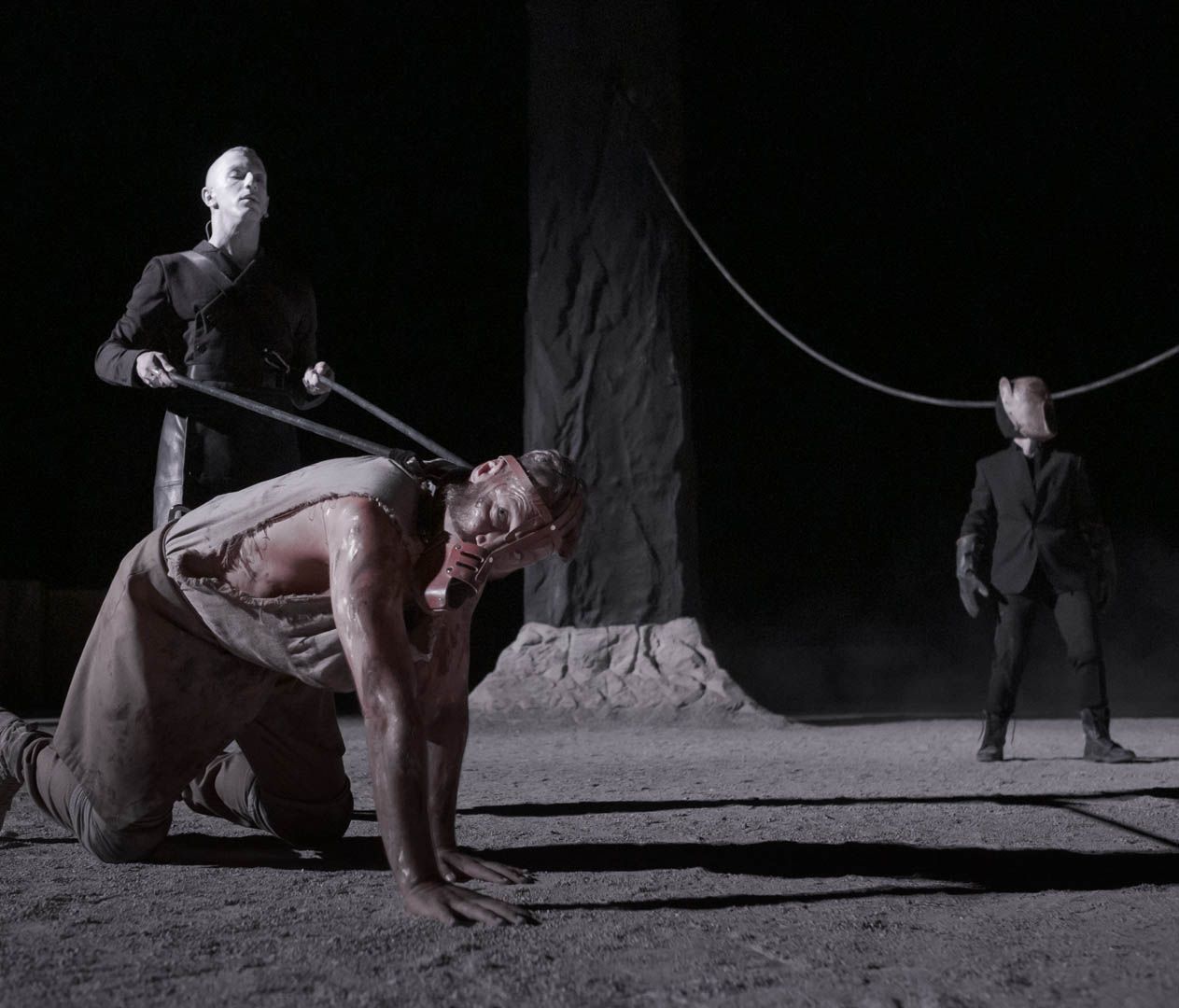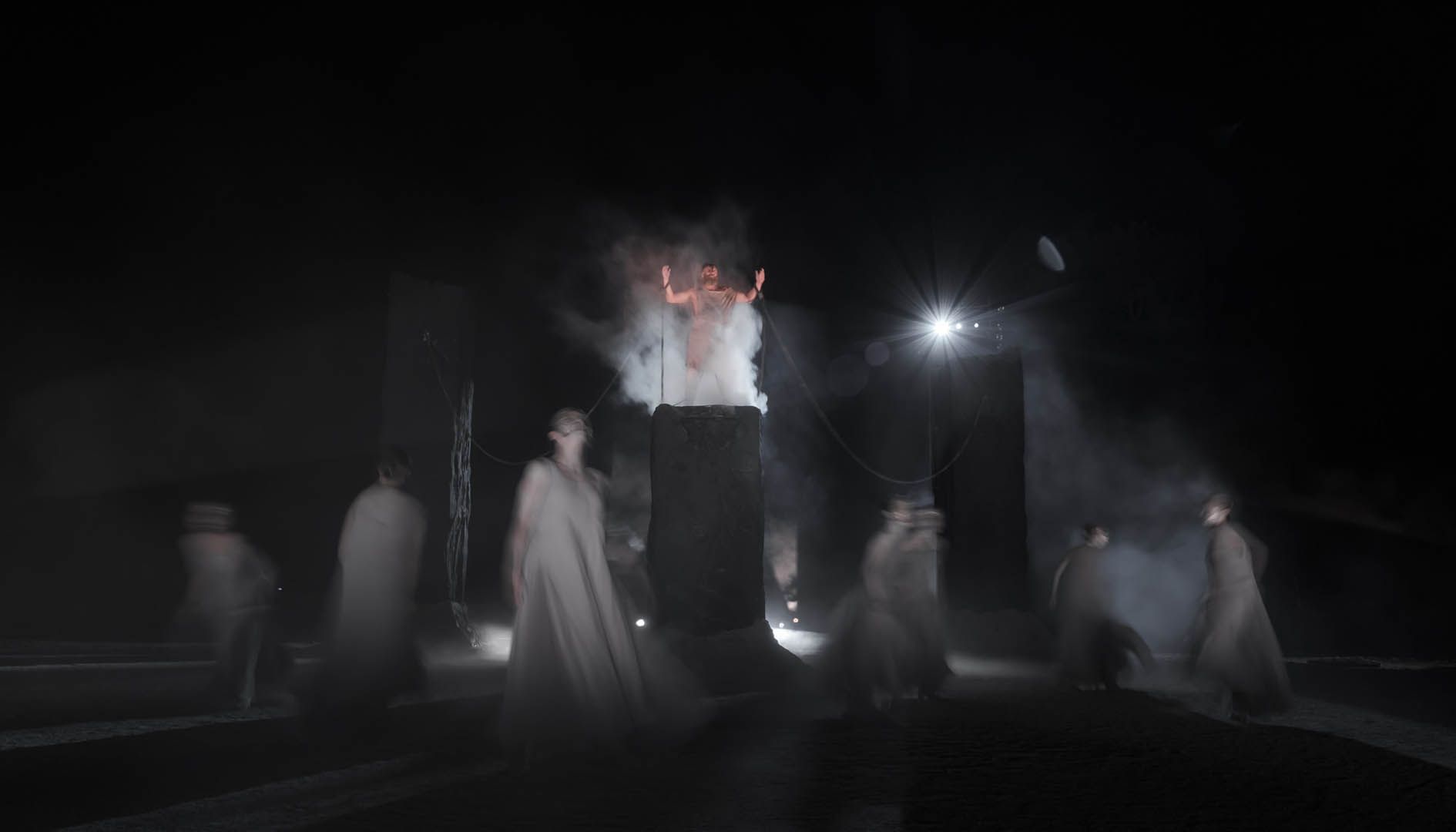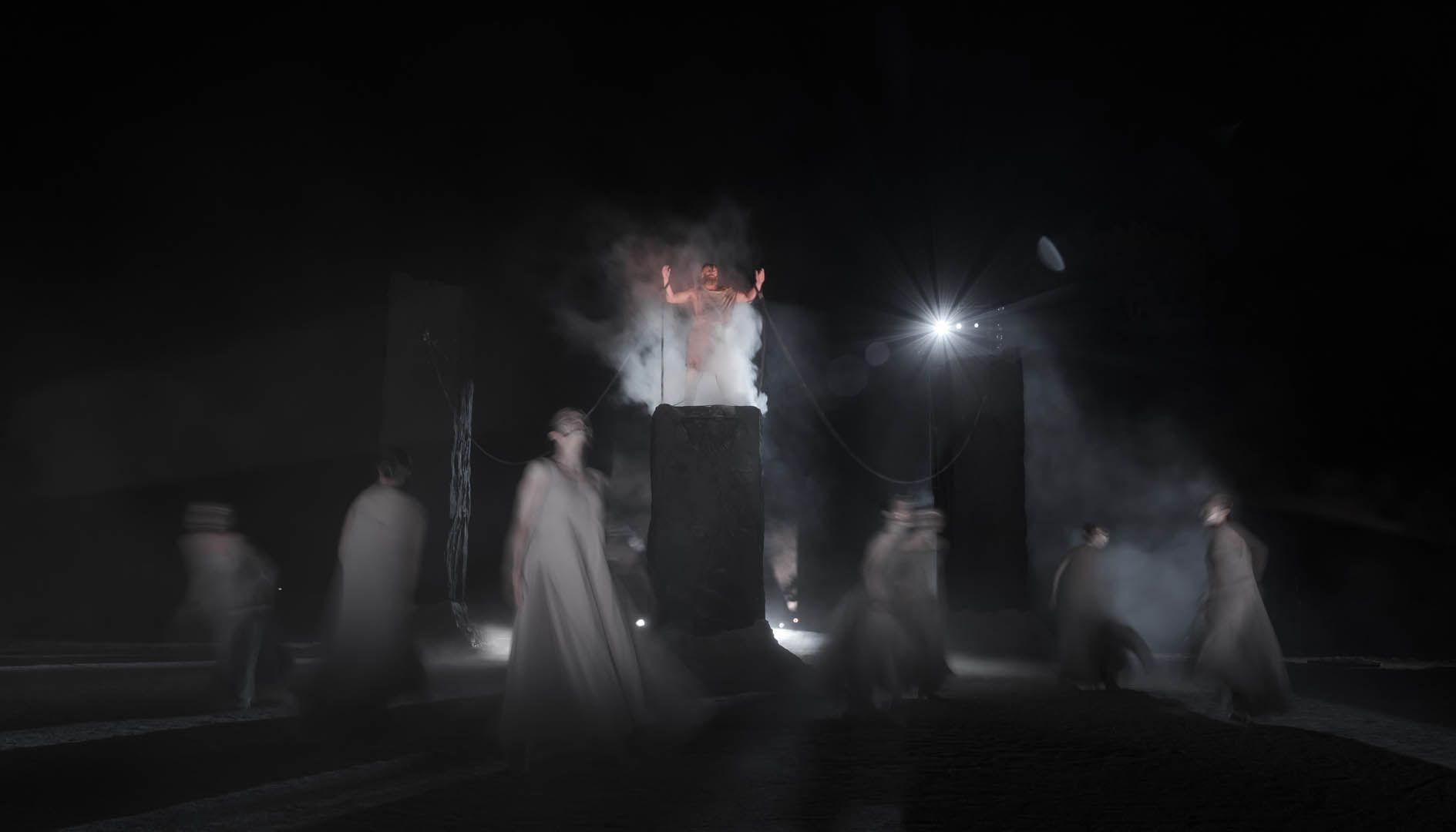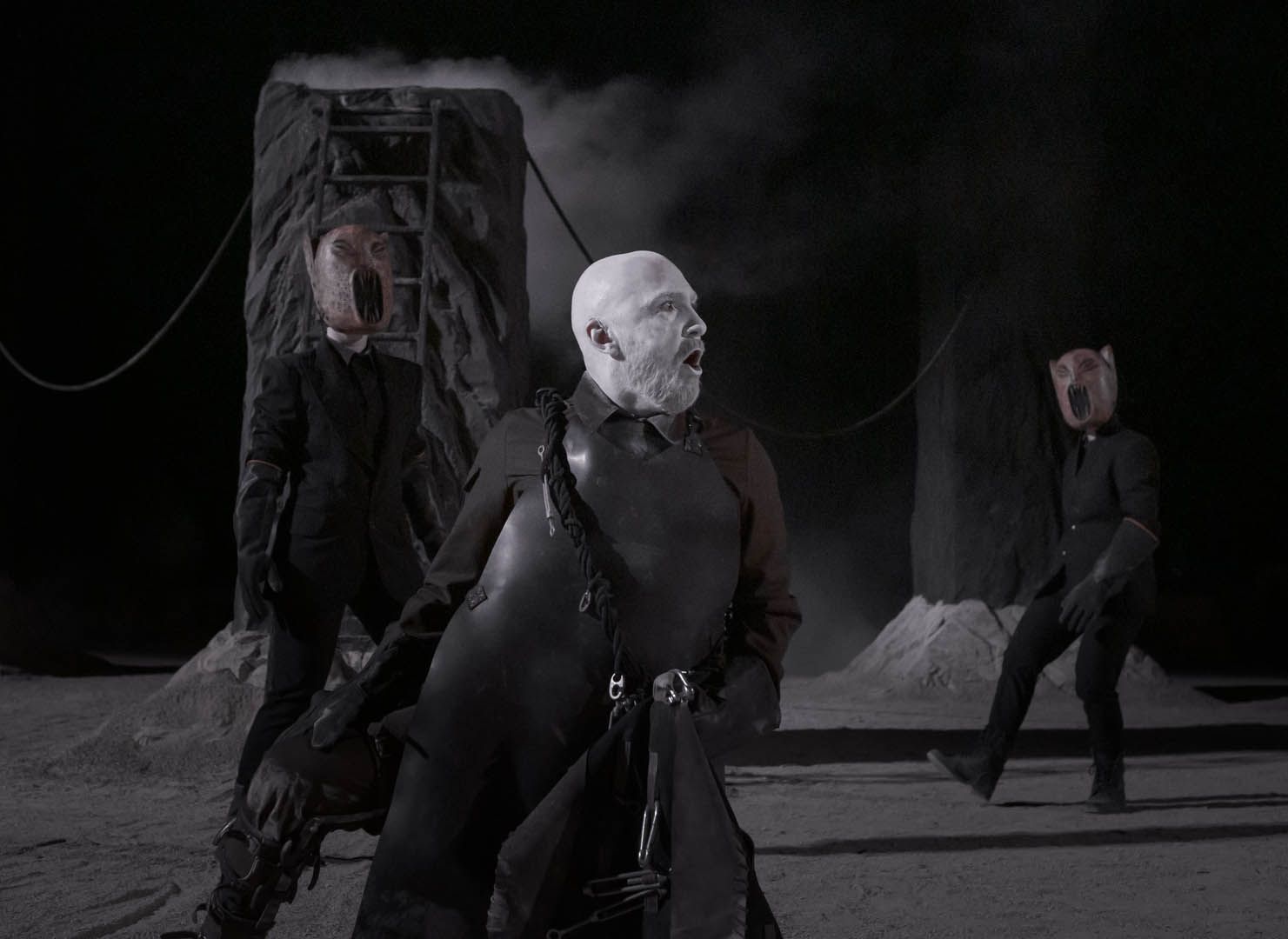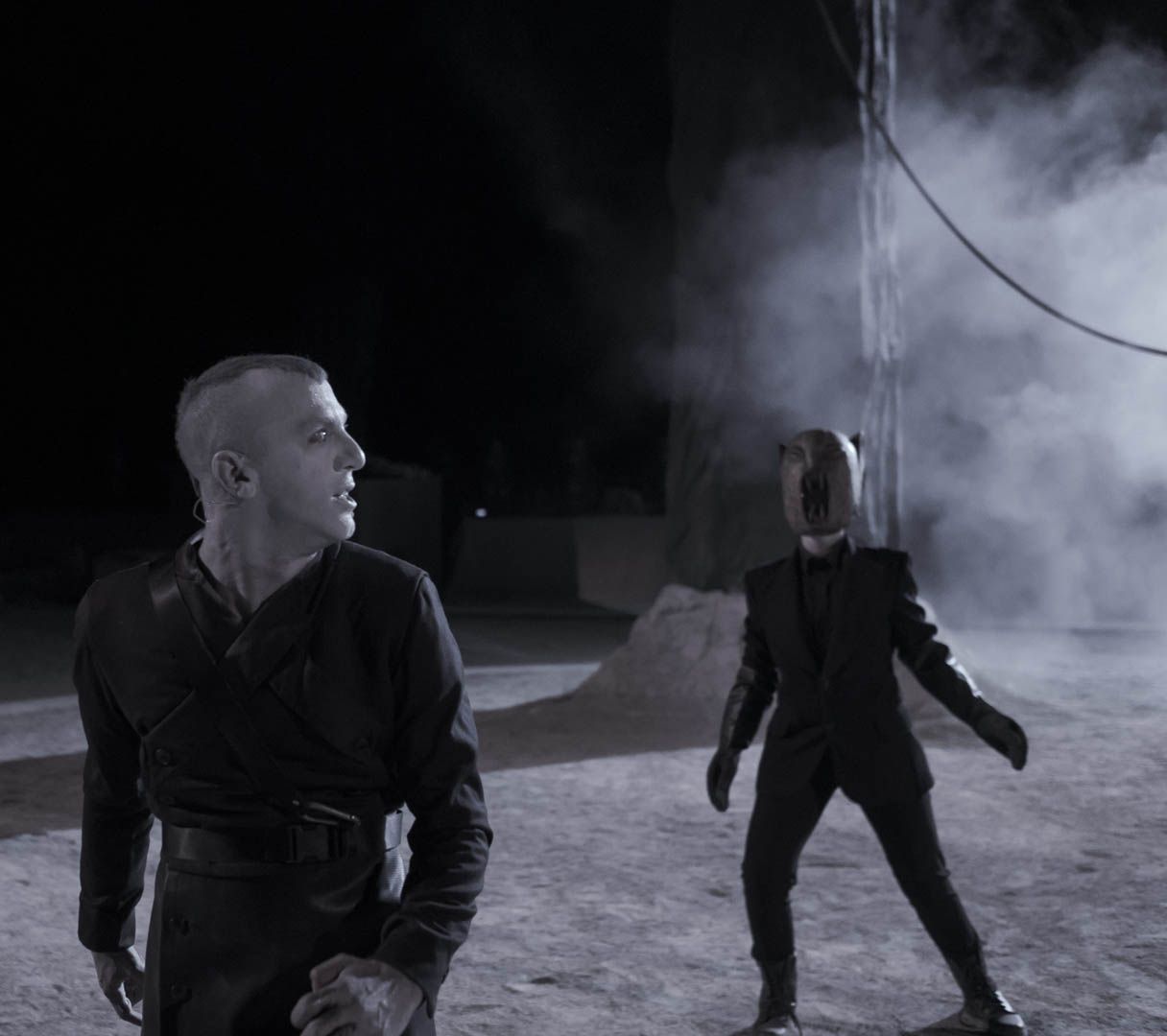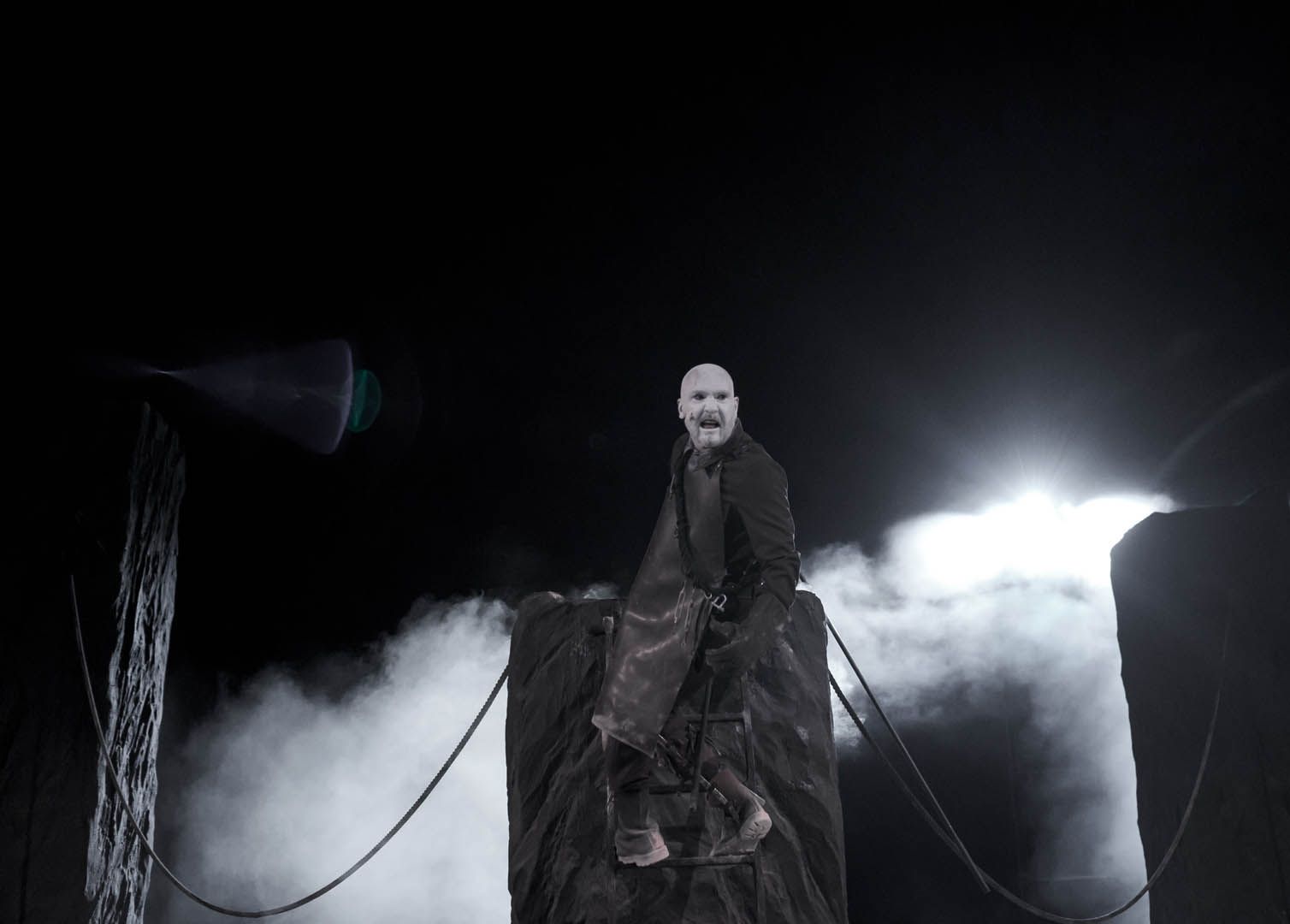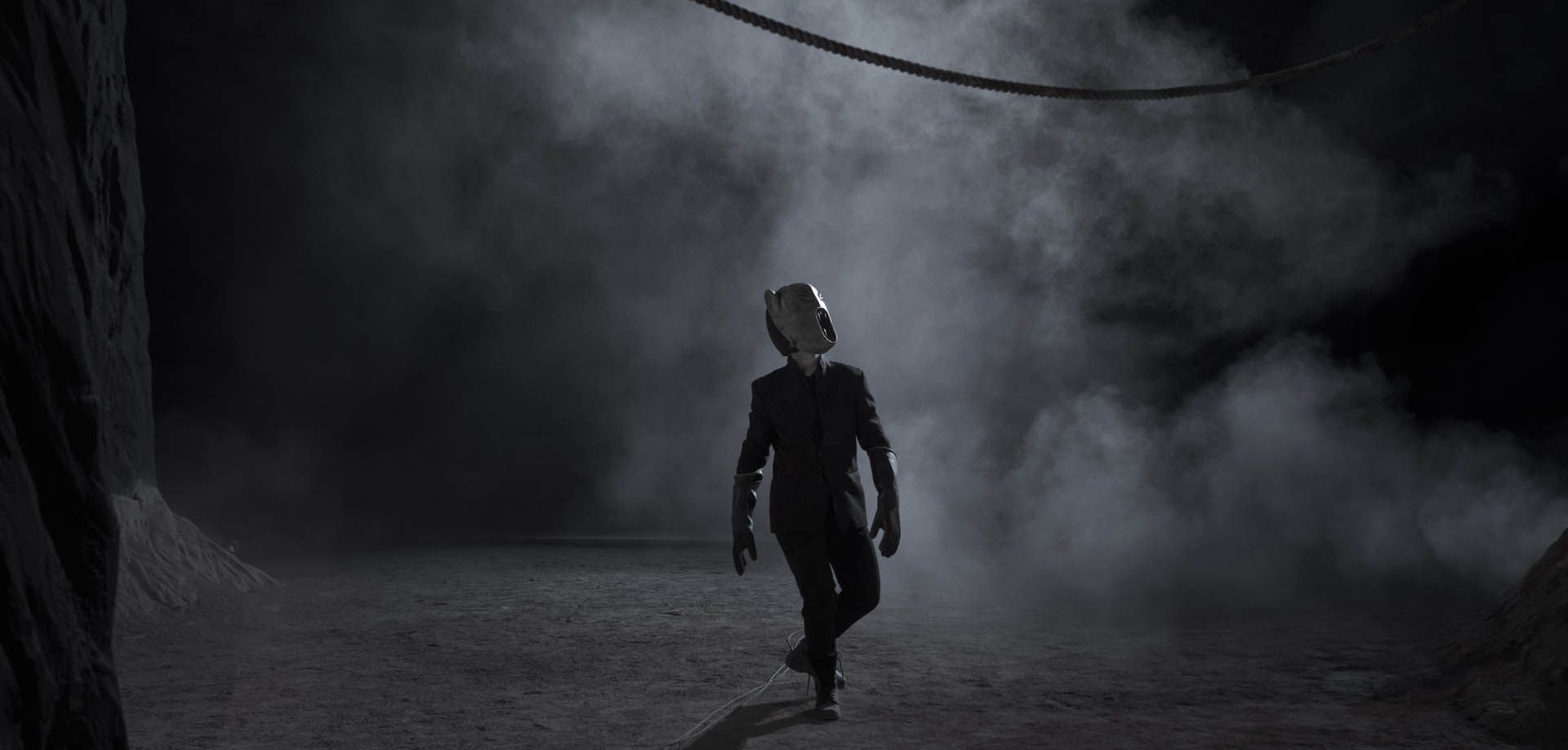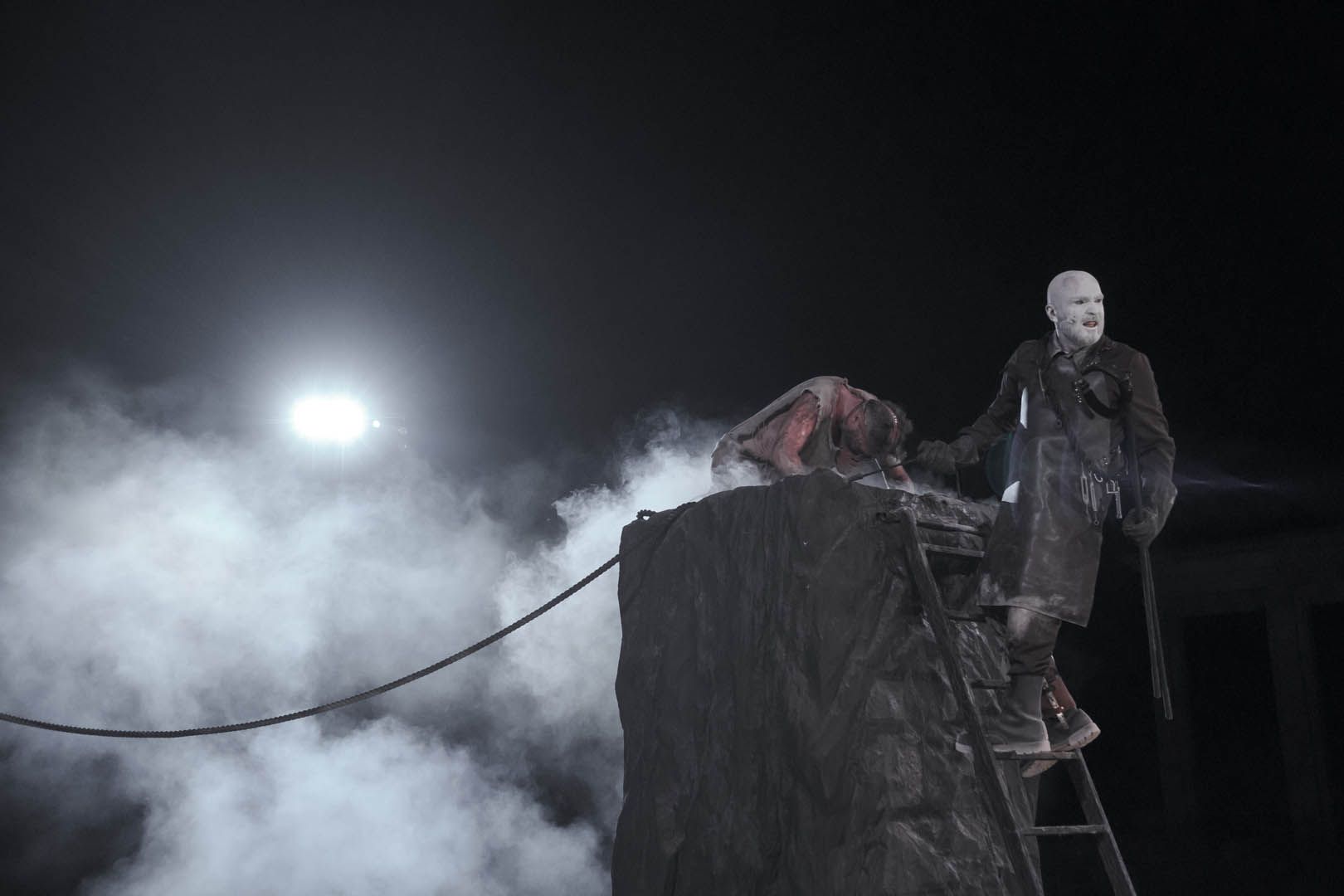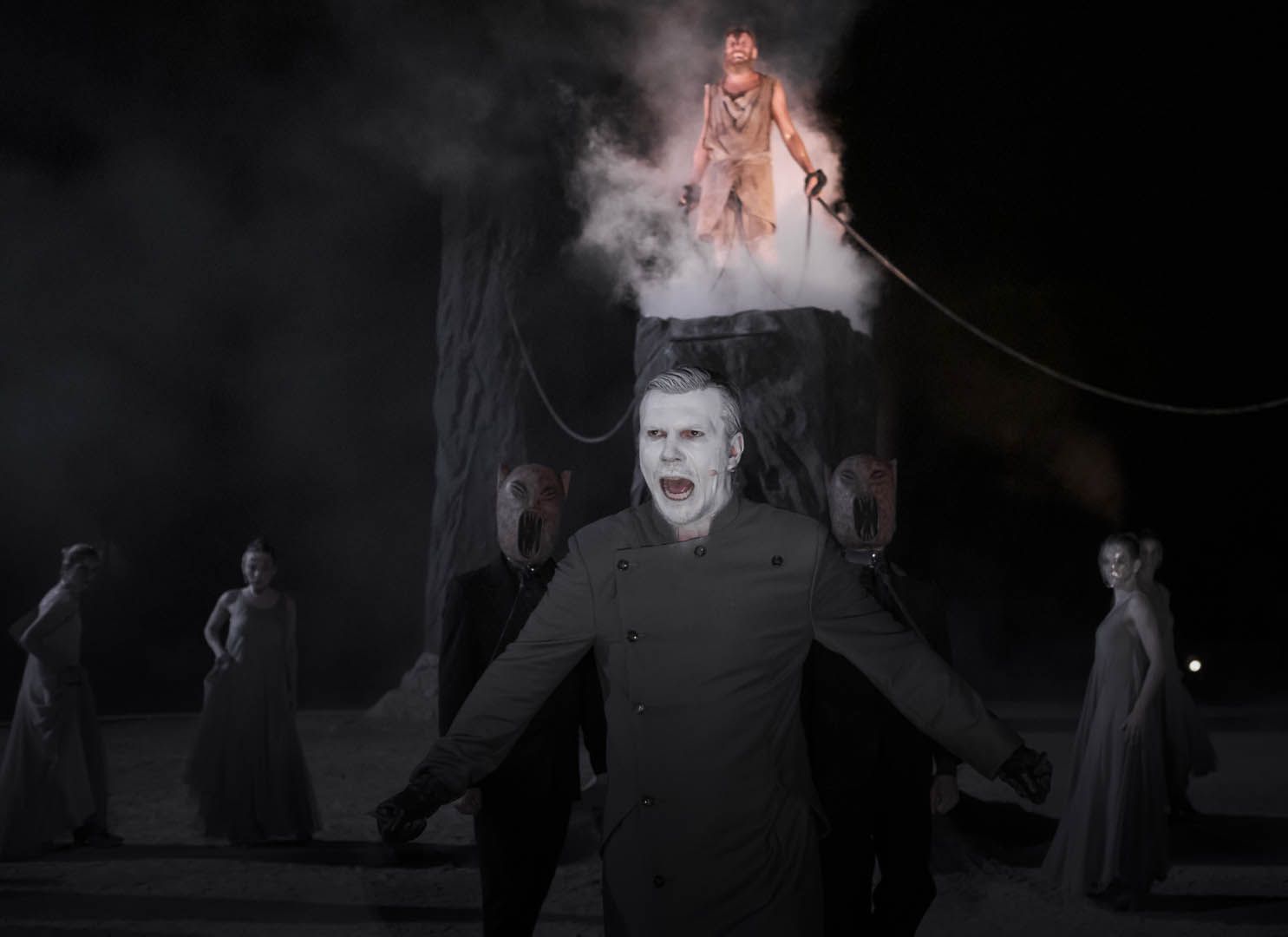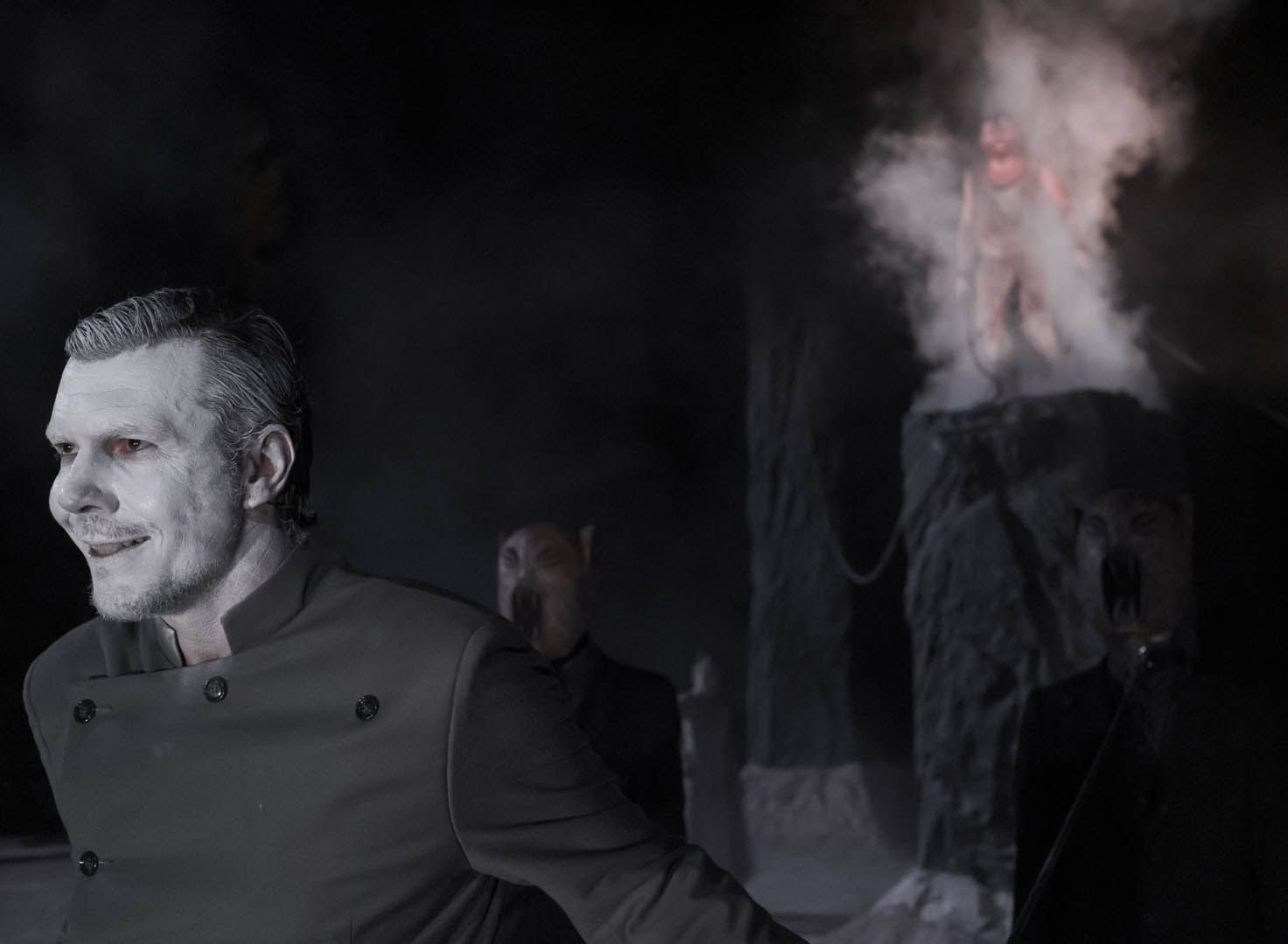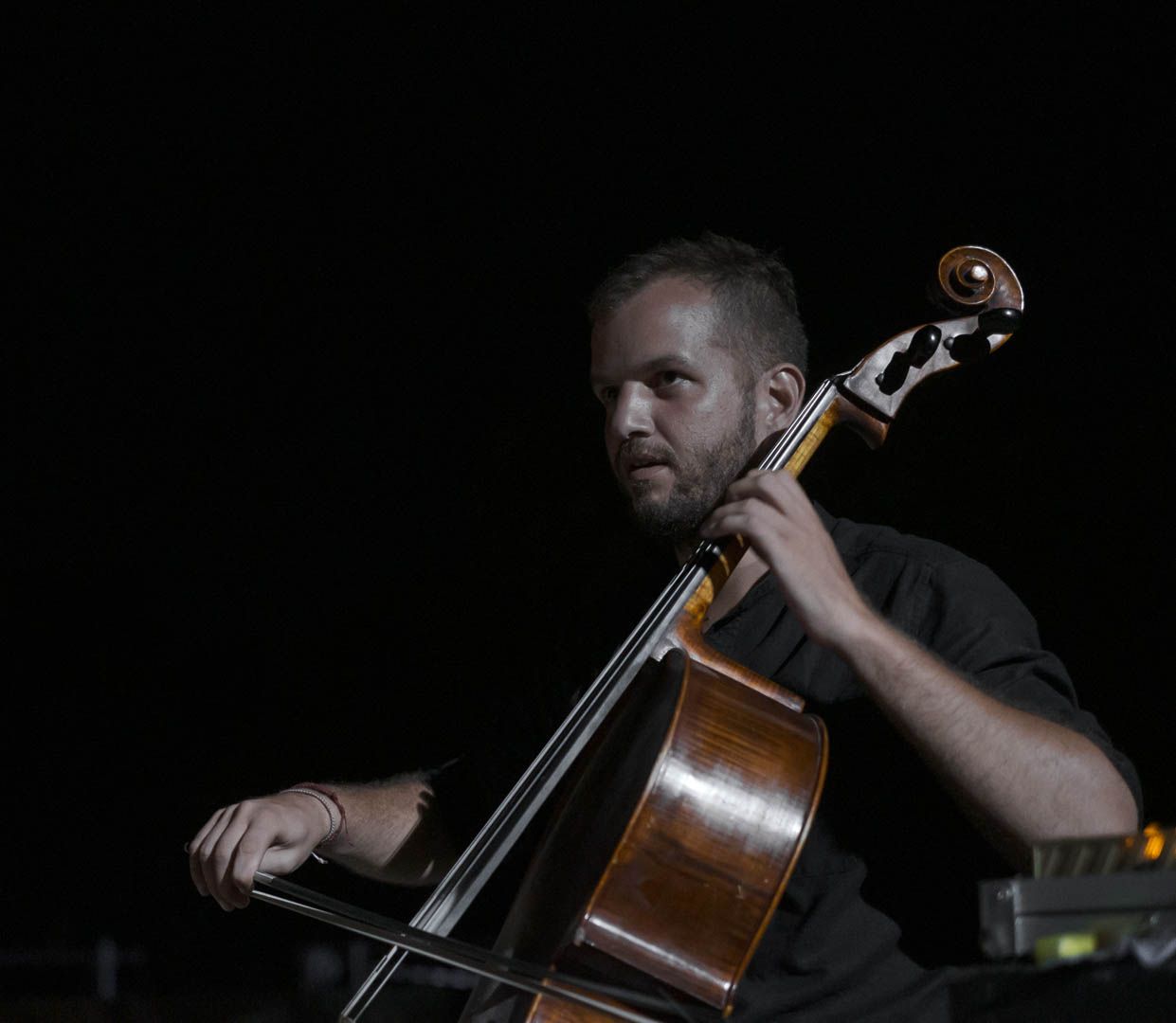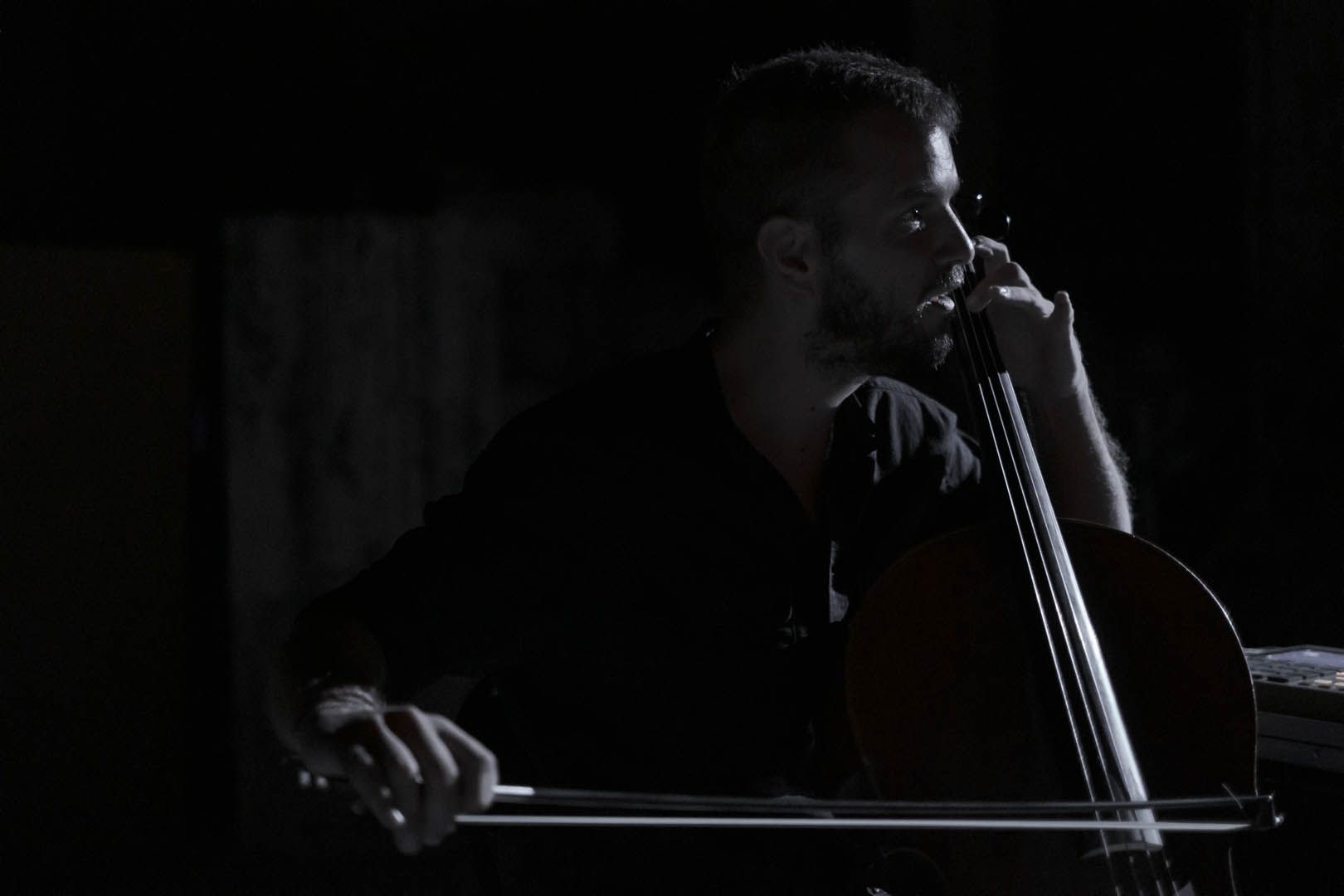PROMETHEUS BOUND by Aeschylus
- Friday, July 22Curium Ancient Theatre
- Saturday, July 23Curium Ancient Theatre
- Performances start at:21:00Please arrive at Curium Ancient Theatre before 20:00
- Duration:
75 minutes
Poreia Theatre participates in this year’s Festival with Aeschylus’ masterpiece, Prometheus Bound, translated by Giorgos Blanas and directed by Aris Biniaris, with a select cast and Yannis Stankoglou in the titular part.
In this tragedy, Aeschylus deals with Prometheus’ resistance, who while chained on the rocks of Caucasus still refuses to succumb to the will of “ruthless” Zeus, thus setting the stage for multiple conflicts. Prometheus rises, defending man against the authoritarian mechanism of a divine tyranny and awakens the race of men to critical thinking, passion for freedom and personal autonomy.
Aris Biniaris, drawing inspiration from the rhythmical qualities of the text, continues his study on ancient tragedies leading his actors to transform the sounds and rhythms of the poetic text into stage action using their bodies and voices. Against the backdrop of a pulsating, live soundscape, the performers bring to life the characters of an age-old but invariably timely story where Prometheus becomes a timeless symbol of resistance. “A story that can be perceived as a bleak commentary on the present or as a bright hope for the future”, in the director’s own words.
WITH ENGLISH SURTITLES
- Translation:
Giorgos Blanas
- Direction:
Aris Biniaris
- Musical composition:
Fotis Siotas
- Set design:
Magdalini Avgerinou
- Costume design:
Vasiliki Syrma
- Lighting design:
Alekos Anastasiou
- Movement/Choreography:
Evi Economou
- Dramaturgy consultant:
Elena Triantafyllopoulou
- Metrical analysis of the original text:
Kaiti Diamantakou
- Scientific associate:
Katerina Diakoumopoulou
- Assistant to the director:
Dora Xagorari
- Assistant to the set designer:
Xenia Papatriantafyllou
- Assistant to the costume designer:
Alexandros Garnavos
- Assistant to the lighting designer:
Nafsika Christodoulakou
- Props/Sculptures:
Dimitra Kaisari Workshop
- Make-up:
Evi Zafeiropoulou
- Production manager:
Stella Giovani
- Executive producers:
Vasileia Taskou, Anna Pasparaki
- Photographs:
Patroklos Skafidas
Cast:
- Prometheus:
Yannis Stankoglou
- Kratos:
Aris Biniaris
- Bia/Follower of Oceanus & Hermes:
Konstantinos Georgalis
- Hephaestus/Follower of Oceanus & Hermes:
David Malteze
- Oceanus:
Alekos Syssovitis
- Io:
Nancy Boukli
- Hermes:
Ioannis Papazisis
- Followers of Kratos and Bia:
Katerina Dimati, Grigoria Metheniti
- Chorus (in alphabetical order):
Katerina Dimati,
Fiona Georgiadi,
Dafni Kiourktsoglou,
Grigoria Metheniti,
Dafni Nikitaki,
Alexia Sapranidou,
Thaleia Stamatelou,
Dimitra Vitta,
Eleni Vlachou - Musician on stage:
Stamatis Fousekis (double bass, effects)
DIRECTOR’S NOTE
Prometheus’s heart-wrenching and constantly escalating efforts to resist Zeus’s authoritarian system of tyranny is like an arrow that pierces through the heart of the dramatic events, before it finally finds its target at the very end. The figure of the suffering god-prophet rises high, exposed to the bleakness of a desolate land, in the craggy exile of his heinous shackles, a precipice of detention, punishment and dishonour. Prometheus’s impulses are ignited by the culmination of the sovereign’s cruelty and intractability in the face of anyone who dares defy the edicts of the monarchy.
Like a beacon of unquenchable exultation that refuses to subside or be extinguished, the hero constantly self-combusts, triggering a reflexive awakening. Advocating for self-actualization, emancipation and an ultimate release from the destructive jealousy of cruel leaders, he constantly rebuffs Zeus’s demands for compliance. Using fiery, prophetic, often pointed and sometimes compassionate language, he calls upon us to connect with our inner source of existential grievance, capable of overturning any long-standing tyranny and questioning its God-given status. Zeus’s retort is devastating.
Through his representatives, he either demands blind faith in his decisions or compulsory collusion in his devious schemes. Every member of the ruling class reveals, through their presence, the dark ways of the sovereign and confirms the heartless nature of the tyrant. Instruments of power, opportunist advisors and subservient volunteers, accompanied by guards or subordinates, communicate ultimatums, intensifying the delineation of a merciless institutional hierarchy.
The Oceanids look upon Prometheus’ painful efforts and the trajectory of the tyrant’s tactics. They seek out the incandescent soul of the prophet in his place of confinement and listen to his ruminations. They wonder whether it is worth fighting for change when the price is so high. They rage over Oceanus’s opportunism and gradually comprehend the arbitrary roar of the sovereign. Lastly, they behold the maiden Io, driven to madness by the gadfly, and they tune into the convulsions of her tragic fate. Her tortured, disposable body, mercilessly ravaged by the tyrant, is the final proof of Zeus’s brutality.
Hermes’ final commands add insult to injury, irrevocably convincing them of Prometheus’s sound logic. The Oceanids’ final decision to hurl themselves into the bleak depths of Tartarus is a declaration of their emotional shift, a moving show of bravery that transcends fear. The time has come for the flaming arrows of Prometheus’s impulses to finally meet their target. As a vessel of dramatic insight and a visionary of hope, Prometheus prepares to hurl himself into Tartarus. His fall is a lofty provocation, an incessant stimulus that tellingly escalates the clash between the unrelenting prophet and the ruthless, implacable tyrant.
Aris Biniaris
POREIA THEATRE
‘Dolichos’ theatre company was established in 1998 by the director, actor and translator Dimitris Tarlow and since 2000 it has been housed at the Poreia Theatre.
Its wide repertoire includes modern plays from all over the world – some of which were performed for the first time in Greece (The Beast on the Moon, Eurydice, Glengarry Glen Ross, the Woods, Oleanna, Blasted, The Man Who), classical plays from world theatre (and other literary genres) from all periods of history in modern adaptations by important writers, or in original adaptations (Frenapati (Mind–bender) based on Pierre Corneille’s L’ Illusion comique, Miranda –based on Shakespeare’s The Tempest, Greek plays (Oblivion, Blind Spot, Great Chimera – adaptation, Satisfied – adaptation, Junkerman – adaptation, Heights 731 – composition, Common Glory – composition).
The stylistic choices of the productions is also characterized by great diversity; Dolichos works with many different directors each of whom brings his or her personal touch (Stathis Livathinos, Yiannis Houvardas, Oskaras Korsunovas, Dimitris Tarlow, Grigoris Karantinakis, Martha Frintzila, Renate Jett, Cezaris Grauzinis, Dimitris Karantzas, Aris Biniaris, Yiannos Perlengas, Maria Manganari, Argyris Pantazaras), with the aim of creating a living theatrical language that expresses the concerns (social and artistic) of the present, while at the same time, focusing on the future. Dolichos has also taken part in joint productions with groups of young artists and has organised multiple parallel activities.
Productions by Poreia Theatre have won numerous awards from major Greek organisations and have toured in Greece and abroad. Together to its productions, Poreia Theatre offers to its audience activities and events inspired by its repertoire, such as open discussions with the artists, philosophical brunches, meetings with the artists, musical evenings, exhibitions, etc. The theatre’s loyal audience includes theatre lovers of all ages.
Poreia Theatre is fully accessible and is subsidised by the Hellenic Ministry of Culture.
